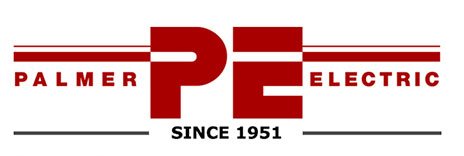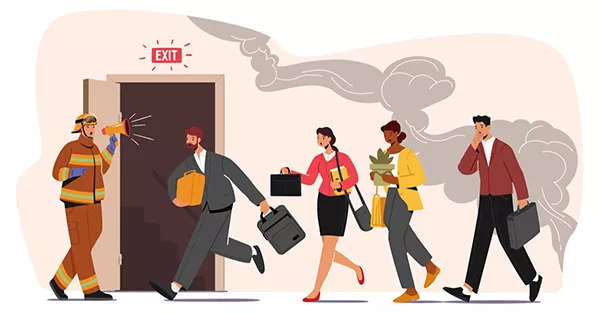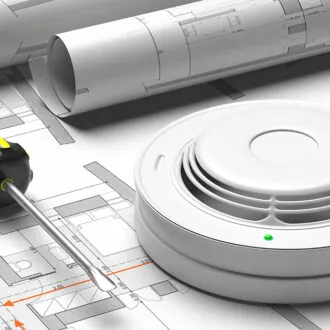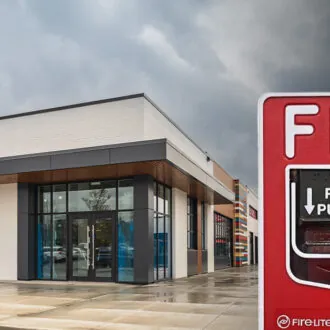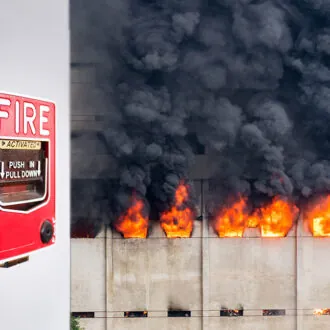Commercial Fire Alarm Systems
Most commercial buildings require a fire alarm system according to the NFPA (National Fire Protection Association Codes) and IBC (International Building Code). If you are looking for information as to whether your new or existing commercial building requires a commercial fire alarm system, see below for guidelines for different types of facilities. To ensure you are within code for your location, you’ll also need to refer to your state, county and municipal fire code requirements.
IBC Requirements for Commercial Fire Alarm Systems
The International Building Code outlines the types of facilities that require a fire alarm system in section 907. The IBC states, “An approved fire alarm system installed in accordance with the provisions of this code and NFPA 72 shall be provided in new buildings and structures in accordance with Sections 907.2.21 through 907.2.23.”
These are the types of commercial buildings listed in Section 907.2 with requirements for new facilities.
Offices & Service Providers (Group B)
Offices and service providers are categorized under Group B in both the International Building Code and the Florida Building Code. If you are a service provider, your business most likely falls under Group B. Please note that storing records and accounts also falls under Group B.
Group B building occupants must have a manual fire alarm system or an automatic sprinkler & notification system if one or more of the following is true:
- The combined Group B occupant load of all floors is 500 or more
- The Group B occupant load is more than 100 persons above or below the lowest level of exit discharge.
- The fire area contains an ambulatory care facility.
Based on the IBC, if you are in a small, standalone office building, you may not need a fire alarm system, but check with your local authorities.
Businesses in this category include, but are not limited to:
- Airport traffic control towers
- Ambulatory care facilities
- Animal hospitals, kennels and pounds
- Banks
- Barber and beauty shops
- Car wash
- Civic administration
- Clinic, outpatient
- Dry cleaning and laundries: pick-up and delivery stations and self-service
- Electronic data processing
- Laboratories: testing and research
- Motor vehicle showrooms
- Post offices
- Print shops
- Professional services (architects, attorneys, dentists, physicians, engineers, etc.)
- Radio and television stations
- Telephone exchanges
- Training and skill development not in a school or academic program
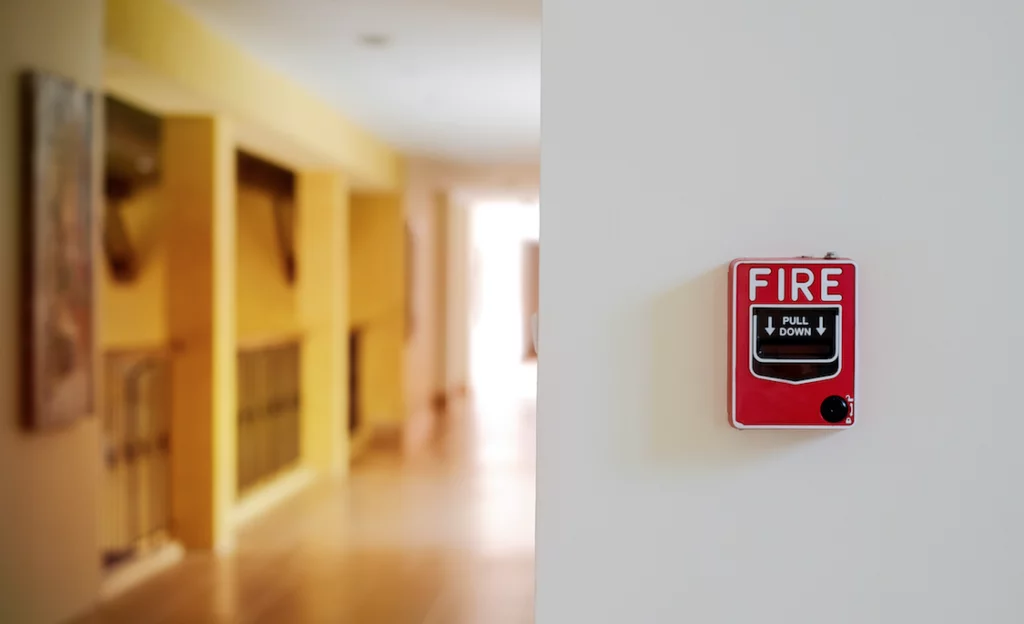
Retail Stores (Group M)
Retail stores have similar requirements for fire alarm systems. Retail and merchandising facilities must install a fire alarm system if one or more of the following is true:
- The combined Group M occupant load of all floors is 500 or more persons.
- The Group M occupant load is more than 100 persons above or below the lowest level of exit discharge.
Group M facilities include but are not limited to:
- Department stores
- Drug stores
- Markets
- Greenhouses for display and sale of plants that provide public access
- Motor fuel dispensing facilities
- Retail or wholesale stores
- Sales rooms
Places of Assembly (Group A)
Places of assembly of 50 or more people are classified in occupant group A. These buildings require a manual or automatic fire alarm system if one of the following is true:
- The occupant load due to the assembly occupancy is 300 or more
- The Group A occupant load is more than 100 persons above or below the lowest level of exit discharge
Group A facilities include but are not limited to:
- Places of religious worship
- Movie theaters
- Concert halls
- Theaters
- Banquet halls
- Casinos
- Nightclubs
- Restaurants & dining facilities
- Taverns & bars
- Amusement arcades
- Bowling allies
- Courtrooms
- Libraries
- Museums
- Art galleries
- Funeral parlors
- Gymnasiums
- Indoor swimming pools
- Stadiums
Other Commercial Facilities
Other commercial facilities that require fire alarm systems depending on occupancy are the following:
- Group E (Schools & Educational Facilities)
- Group F (Low Hazard Factory Industrial Facilities)
- Group H (High Hazard Manufacturing Facilities)
- Group I (Institutional Facilities Including Healthcare, Corrections & Daycare)
- Group R (Residential Facilities Including Hotels & Dormitories)
- Group S (Storage Facilities)
We’ll cover these facilities and requirements in detail in a future article.
Commercial Fire Alarm System Requirements in Florida
Most state and municipal fire codes are adapted from the IBC, the NFPA and the International Fire Codes. Check your state building code for any amendments that outline different requirements in your state.
You can check the Florida Building Code for amendments to your specific industry here:
Florida Building Code Fire Protection Systems
Fire Alarm System Testing, Inspection & Maintenance
Palmer Electric provides Commercial Fire Alarm Systems installation for new and existing facilities. We are also a provider of UL Listed Central Station Fire Alarm Monitoring to keep your facility safe 24/7/365. Palmer Electric has served commercial facilities in Central Florida for over 70 years. Turn to the fire alarm installation & monitoring company that Orlando businesses trust. Contact us today for a free quote at 407-646-8700.
